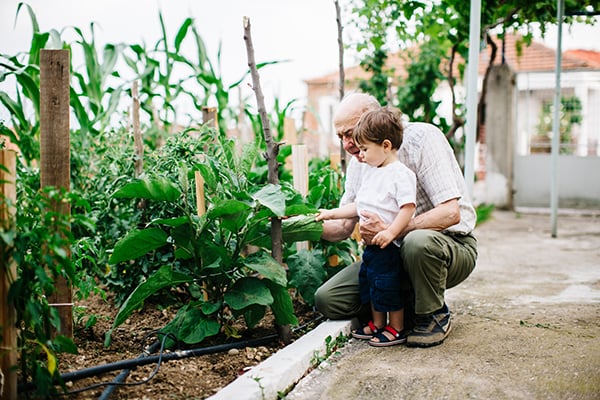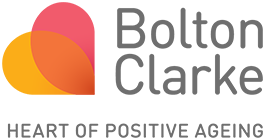Breaking down the barriers

The Aged Care Act says some groups of people with shared diversity characteristics find it harder to access services.
People who identify as lesbian, gay, bisexual, transgender and intersex (LGBTI) are one of these groups. Delivering culturally safe aged care services for LGBTI people means delivering services in ways that help overcome those barriers.
- About one in 10 older Australians identify as lesbian, gay, bisexual, transgender or intersex (LGBTI)
- LGBTI elders can face barriers to accessing aged care. Many fear their choices will not be respected. As a result, older LGBTI people have higher risks of poor physical and mental health.
- The Aged Care Quality Standards, supported by the Aged Care Act and Aged Care Diversity Framework, outline how providers must deliver culturally appropriate care for LGBTI people.
- Making an advance care plan and staying socially connected are among ways to support better health outcomes for LGBTI elders.
Aged care - what LGBTI elders say
One in 10 Australians over 65 identify as LGBTI.
LGBTI elders grew up at a time when they needed to hide their sexual orientation, gender identity or intersex status to protect themselves against discrimination and violence, imprisonment and loss of employment, family
and friends.
Many trans and gender diverse people still restrict their gender expression to avoid upsetting their families.
As a result, older LGBTI adults have a higher risk of disability and poorer mental health. Older transgender adults are at particular risk of poor physical health, disability, depression and perceived stress compared with nontransgender people.
The first National LGBTI Ageing and Aged Care Roundtable in 2011 heard LGBTI elders felt invisible both in mainstream society and LGBTI communities. Older LGBTI people said their past experiences made them afraid of prejudice and discrimination. This meant they may not want to talk about their sexual orientation, gender identity or experiences to government agencies or providers. It could also make them less likely to complain if they experienced discrimination.
Some people were worried about being affected by dementia. They were especially concerned that if they had dementia, aged care employees and family members would stop respecting their choices around gender and identity. LGBTI community members also talked about poorer end of life and palliative care experiences. This was due to stress about their carers’ reactions or their friendships not being recognised. Many wanted to protect their partners’ rights to make decisions for them when they could no longer make them.
Older trans people may fear that aged care workers will not understand their specific medical and personal care needs. For example, people who have had gender reassignment surgery may have special needs around catheter care and prostate care.
Bolton Clarke HIV Team Co-ordinator Liz Crock said people ageing with HIV also had different needs. They may experience conditions associated with ageing, like frailty and cognitive impairment, at a younger age. This can be caused by ongoing treatment and issues like chronic inflammation.
Breaking down the barriers - supporting LGBTI people in aged care
The government, aged care providers and the LGBTI community are working together to help LGBTI people access aged care and aged well.
Legislative change: In 2012 the Australian Government changed the Aged Care Act to include LGBTI people as a special needs group. In November that year, the National LGBTI Ageing and Aged Care Strategy was launched.
The Government’s Aged Care Diversity Framework, launched in 2017, further sets out how aged care providers can work with service users to provide safe and respectful care. This includes respecting people’s different backgrounds and life experiences. The Framework works with the new Aged Care Quality Standards, which started on 1 July 2019. The Standards – which must be met by all aged care providers – include treating people with dignity and respecting choice. This means ensuring everyone using aged care can maintain their identity, make informed choices and live as they choose.
Aged care clients and residents and their family members or carers do not have to tell aged care providers that they are LGBTI. If they do give this information, it is confidential and cannot be shared without consent. Clients and residents can also ask providers to use their preferred name, gender and pronouns. Providers must respect these requests.
Advance care planning support: Advance care planning is an important way people can make their preferences known. An advance care plan is used if there is a time when a person is unable to make their own decisions. These plans can also help family, doctors and aged care providers make the right decisions.
When making an advance care plan a person can choose to appoint a substitute decision-maker who knows and respects their choices.
In Australia, each state has different laws around advance care planning. The Australian Government’s LGBTI Advance Care Planning fact sheet is a useful resource.
Staying connected: There are organisations available to support social connection for older LGBTI people. These include Val’s LGBTI Ageing and Aged Care in Victoria and ACON in NSW. Queensland’s Seniors Enquiry Line promotes social activities for LGBTI elders.
Provider resources and training: Aged care providers like Bolton Clarke also work with LGBTI elders and provide support through resources including Bolton Clarke’s Diversity Framework and training resources like our Digital Diversity Stories. You can hear providers and LGBTI elders speak about respectful care and support here.
The free Altura Learning series Rainbow of Difference is among training resources available for family carers and aged care workers. It also features older LGBTI people telling their stories and speaking about their aged care needs.
About Bolton Clarke
Bolton Clarke is the new face of RSL Care + RDNS. Together we have provided healthcare and aged care services for more than 200 years. We are one of the largest Australian owned and operated not-for-profit healthcare and independent living service providers, with a passion for ensuring our customers live the best possible life. We provide reliable, trustworthy, quality care and support and living options across Retirement Living, Residential Aged Care and Home and Community Support.
Download a PDF version of this white paper here.
Be Healthy and Active
Free health and wellbeing sessions
Bolton Clarke’s Be Healthy and Active program provides free, practical sessions to help you get the most out of life.

Recent white papers
Information for consumers on topics about health, wellbeing and active ageing.

